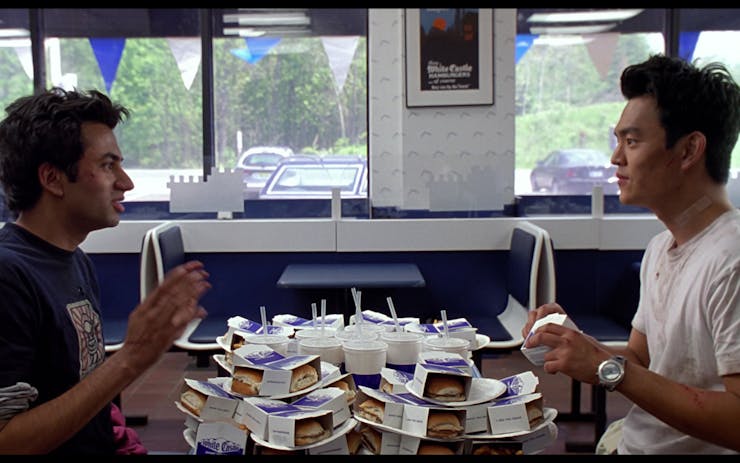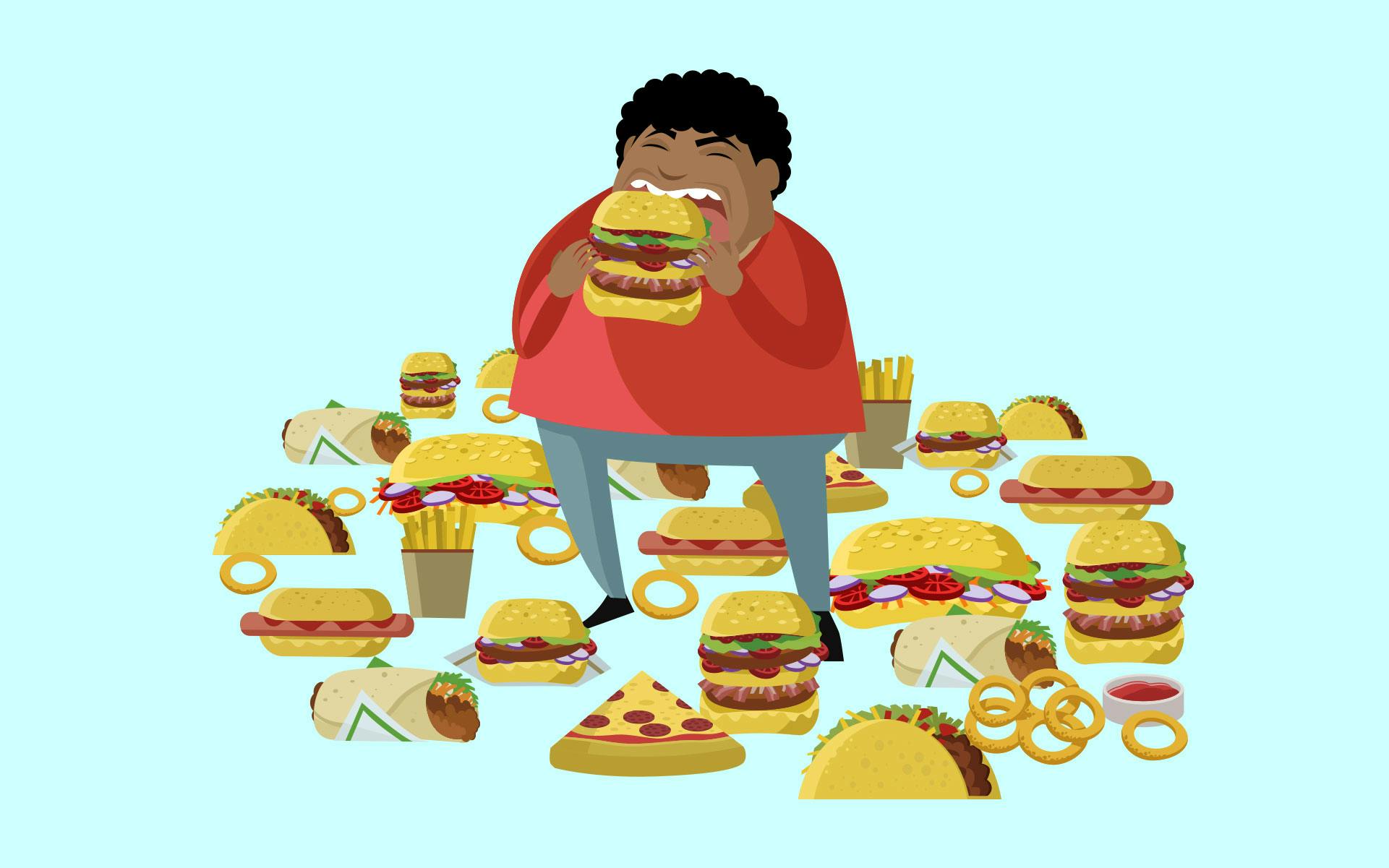I was not sober for my first White Castle hamburger, and somehow that felt right. Not only did the Ohio–based restaurant cement its spot in pop-culture history with the bong-ripping 2004 comedy Harold & Kumar Go to White Castle, but the chain is also open 24 hours and sells its iconic sliders in 30-pack Crave Cases, which are essentially briefcases for stoners.
So why is the purveyor of mid-quality munchies giving thousands of dollars to fight drug reform?
I called and asked.
Tiny Burgers, Outsized Donation
On Tuesday, Ohio voters will weigh in on State Issue 1, which would downgrade certain drug possession crimes from felonies to misdemeanors. It would also put fewer people behind bars by removing jail time as a penalty for first or second offenses. Money saved would go to drug treatment efforts and programs to benefit crime victims. And actually distributing drugs would remain a felony.
Strictly speaking, it’s not a cannabis initiative. But because of its impact on cannabis crimes, it’s one of the state ballot measures we here at Leafly are tracking as part of our midterm election coverage. (Recent polls indicate it has a slight lead.)
The screenshot below shows the top eight contributors to the opposition campaign. It’s kind of a boring list, to be honest—until you get to the very end.
That $15,000 donation from White Castle sticks out. While the family-owned business regularly gives political contributions, the donation to fight drug reform in Ohio is more money than White Castle typically gives. In the 2016 presidential primaries, for example, White Castle wrote a check for just $5,000—to Republican John Kasich, who was Ohio’s favorite son in the race.
White Castle doesn’t seem particularly partisan, either. In April, the company gave $5,000 to the Franklin County Democratic Party. Here are the other contributions White Castle entities have made in Ohio this election, according to the Secretary of State’s website:
So what gives, White Castle? What’s your beef with drug reform?
‘Here’s Our Thing: We’ll Always Talk’
After pestering White Castle a bit, I found myself on the phone with Jamie Richardson, the company’s vice president of government and shareholder relations.
“I was the person internally who was the champion for Harold & Kumar Go to White Castle,” he told me. It was clear I’d reached the right person.
He of all people should know that White Castle and cannabis have chemistry. So why, I asked him, did the company fork over $15,000 to prop up the drug war?
“It isn’t related to cannabis,” Richardson told me. “It’s about the opioid crisis. Ohio’s really been ground zero.”
While opioid overdoses have ravaged the country in recent years, Ohio has indeed been among the hardest hit. In 2016, according to CDC data, Ohio had the second-highest number of drug overdose deaths in the country.
“This year alone, we’ve had deaths in White Castle bathrooms,” Richardson said. “For us, it’s hit home. We had joined earlier this year and made a contribution to a nonprofit that’s been started, the Ohio Opioid Overdose Alliance.”
The donation, he reiterated, “for us was 100% around concern about the opioid crisis.”
‘We Don’t Have a Position on Cannabis Decriminalization’
White Castle says its contribution to oppose Issue 1 was about opioids. Fair enough. Drug overdoses killed about 72,000 people in 2017, according to the New York Times—a death toll higher than peak yearly death tolls from HIV, guns, or car crashes. But how does White Castle feel about cannabis, which hasn’t caused a single recorded overdose death?
“We don’t have a position on cannabis decriminalization,” Richardson said. “We’re not actively opposing decriminalization of marijuana anywhere.”
Even when it came to greenlighting Harold & Kumar, he said, the company was less concerned with cannabis than it was with how the movie depicted White Castle employees. After Richardson pitched the film partnership to the his CEO, he said, “He sort of shrugged and asked one question: Does it make fun of our team members?”
Motivation vs. Method
Let’s take White Castle at its word that the company’s contribution was purely about opioids. Is continued criminalization the right way to curb overdose deaths?
Increasingly, drug policy experts say no. Academics like Leo Beletsky, a professor of law and health sciences at Northeastern University who recently published an opinion piece in the New York Times, note that alternative approaches offer more promising ways to reduce drug-related harm—things like safe consumption spaces and drop-in centers that offer treatment and the lifesaving anti-overdose drug naloxone.
As the pro-decriminalization Drug Policy Alliance argues, incarceration and criminalization also feed racism, over-policing, and ongoing stigma that can do more harm to drug users than the drugs themselves.
“Relying on the criminal justice system to address issues with drugs wastes money, creates a toxic relationship between the police and the communities they are supposed to protect, and does nothing to address problematic drug use,” the group’s website says.
Rather than deter people from using drugs, felony convictions—the kind that Ohio’s Issue 1 would reduce to misdemeanors—can perpetuate a vicious cycle. With a felony record, individuals often struggle to find housing, land a job, collect public benefits, or be admitted to college. With fewer legitimate options, crime grows more appealing—and drug abuse more tempting.
In other words, White Castle’s opposition to reducing penalties for drug crimes might make sense on an intuitive level, but more and more data suggest it’s an approach likely to backfire.
“These are complex issues,” Richardson told me. “I absolutely acknowledge that there’s a lot that we’re trying to figure out and sort out on this issue.”
When I asked him about other harm-reduction method, he said he was open to new ideas. “We don’t know enough right now to know what the right solution is,” he added. “It definitely deserves continued attention and discussion.”
And a $15,000 donation on behalf of the drug war, apparently.
‘We’re There for Everybody’
Richardson made plain that White Castle doesn’t want a reputation as an anti-drug crusader. And the company clearly isn’t above cashing in on stoner culture. “We’re open to everyone,” Richardson said, “and our thought is we’re there for everybody.”
It’s easy to believe the company’s $15,000 donation to defend the criminal war on drugs came from a place of sincere concern. But it’s also important to ask whether doubling down on criminalization will actually save lives—and whether we trust a medieval-themed burger chain to provide the answer.








